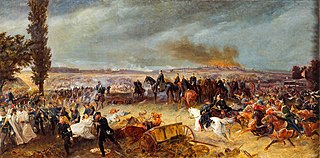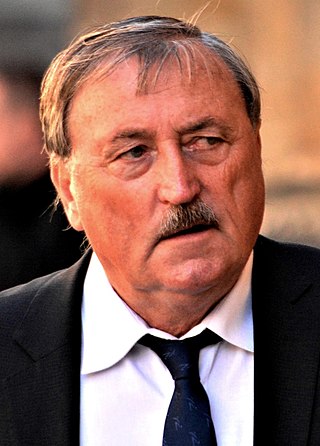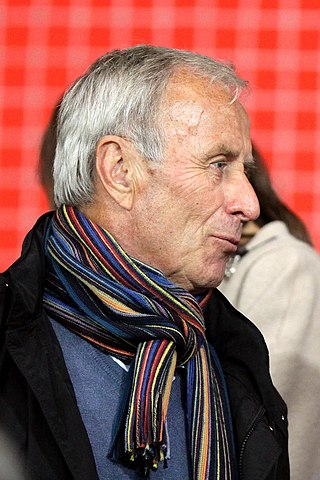Related Research Articles

The House of Habsburg, also known as the House of Austria, was one of the most prominent and important dynasties in European history.

Sigismund, a member of the House of Habsburg, was Duke of Austria from 1439 until his death. As a scion of the Habsburg Leopoldian line, he ruled over Further Austria and the County of Tyrol from 1446 until his resignation in 1490.
The history of Austria covers the history of Austria and its predecessor states. In the late Iron Age Austria was occupied by people of the Hallstatt Celtic culture, they first organized as a Celtic kingdom referred to by the Romans as Noricum, dating from c. 800 to 400 BC. At the end of the 1st century BC, the lands south of the Danube became part of the Roman Empire. In the Migration Period, the 6th century, the Bavarii, a Germanic people, occupied these lands until it fell to the Frankish Empire established by the Germanic Franks in the 9th century. The name Ostarrîchi (Austria) has been in use since 996 AD when it was a margravate of the Duchy of Bavaria and from 1156 an independent duchy of the Holy Roman Empire (962–1806).

The House of Babenberg was a noble dynasty of Austrian Dukes and Margraves. Descending from the Popponids and originally from Bamberg in the Duchy of Franconia, the Babenbergs ruled the imperial Margraviate of Austria from its creation in 976 AD until its elevation to a duchy in 1156, and from then until the extinction of the line in 1246, whereafter they were succeeded by the House of Habsburg.

Charles V was Holy Roman Emperor and Archduke of Austria from 1519 to 1556, King of Spain from 1516 to 1556, and Lord of the Netherlands as titular Duke of Burgundy from 1506 to 1555. He was heir to and then head of the rising House of Habsburg. His dominions in Europe included the Holy Roman Empire, extending from Germany to northern Italy with rule over the Austrian hereditary lands and Burgundian Low Countries, and Spain with its possessions of the southern Italian kingdoms of Naples, Sicily and Sardinia. In the Americas, he oversaw the continuation of Spanish colonization and a short-lived German colonization. The personal union of the European and American territories he ruled was the first collection of realms labelled "the empire on which the sun never sets".

The Austro-Prussian War, also by many variant names such as Seven Weeks' War, German Civil War, Brothers War or Fraternal War, known in Germany as Deutscher Krieg, Deutsch-Deutscher Krieg, Deutscher Bruderkrieg and by a variety of other names, was fought in 1866 between the Austrian Empire and the Kingdom of Prussia, with each also being aided by various allies within the German Confederation. Prussia had also allied with the Kingdom of Italy, linking this conflict to the Third Independence War of Italian unification. The Austro-Prussian War was part of the wider rivalry between Austria and Prussia, and resulted in Prussian dominance over the German states.

The French Revolutionary Wars were a series of sweeping military conflicts resulting from the French Revolution that lasted from 1792 until 1802. They pitted France against Great Britain, Austria, Prussia, Russia, and several other countries. The wars are divided into two periods: the War of the First Coalition (1792–1797) and the War of the Second Coalition (1798–1802). Initially confined to Europe, the fighting gradually assumed a global dimension. After a decade of constant warfare and aggressive diplomacy, France had conquered territories in the Italian Peninsula, the Low Countries, and the Rhineland due to its very large and powerful military, which had been totally mobilized for war against most of Europe with mass conscription of the vast French population. French success in these conflicts ensured military occupation and the spread of revolutionary principles over much of Europe.

The Austria national football team represents Austria in men's international football competitions, and is controlled by the Austrian Football Association.
The French Revolutionary Wars continued from 1795, with the French in an increasingly strong position as members of the First Coalition made separate peaces. Austria and Great Britain were the main remaining members of the coalition. The rebellion in the Vendée was also finally terminated by General Hoche.

Fußballklub Austria Wien AG, known in English as Austria Vienna, and Austria Wien in German-speaking countries, is an Austrian professional association football club from the capital city of Vienna. It has won the most trophies of any Austrian club from the top flight, with 24 Austrian Bundesliga titles and 27 Austrian Cup titles. Austria is one of only two teams that have never been relegated from the Austrian top flight. With 27 victories in the Austrian Cup and six in the Austrian Supercup, Austria Wien is also the most successful club in each of those tournaments. The club reached the UEFA Cup Winners' Cup final in 1978, and the semi-finals of the European Cup the season after. The club plays at the Franz Horr Stadium, known as the Generali Arena since a 2010 naming rights deal with an Italian insurance company.

Antonín Panenka is a Czech former professional footballer who played as an attacking midfielder. He spent most of his career at Czechoslovak club Bohemians Prague before having spells with various Austrian clubs including Rapid Wien. Panenka won UEFA Euro 1976 with Czechoslovakia and gained recognition for his winning penalty kick in the shoot-out of the final against West Germany, where he scored with a softly-chipped ball up the middle of the goal as the goalkeeper dived away. This style of penalty is now known as a panenka. In 1980, he won Czechoslovak Footballer of the Year and his team finished third at Euro 1980.

Josef Hickersberger is a former professional football player and former coach of the Austria national football team and Austrian club side Rapid Wien.

The Battle of Stockach occurred on 25 March 1799, when French and Austrian armies fought for control of the geographically strategic Hegau region in present-day Baden-Württemberg. In the broader military context, this battle constitutes a keystone in the first campaign in southwestern Germany during the Wars of the Second Coalition, part of the French Revolutionary Wars.

The Electorate of Bavaria was a quasi-independent hereditary electorate of the Holy Roman Empire from 1623 to 1806, when it was succeeded by the Kingdom of Bavaria.

Marko Arnautović is an Austrian professional footballer who plays as a forward for Serie A club Inter Milan, and vice-captains the Austria national team.

The Duchy of Styria was a duchy located in modern-day southern Austria and northern Slovenia. It was a part of the Holy Roman Empire until its dissolution in 1806 and a Cisleithanian crown land of Austria-Hungary until its dissolution in 1918.

Johann "Hans" Buzek is a former Austrian football forward.
Rudi Strittich was an Austrian football coach and former player.

Heinrich XV, Prince Reuss of Greiz was the fourth of six sons born into the reigning family of the Principality of Reuss. At the age of fifteen he joined the army of the Habsburg monarchy and later fought against Ottoman Turkey. During the French Revolutionary Wars he became a general officer and saw extensive service. He commanded a corps during the Napoleonic Wars. From 1801 until his death, he was Proprietor (Inhaber) of an Austrian infantry regiment.
Josef Uridil was an Austrian footballer and coach.
References
- ↑ SITA. "V Trnave prišlo po sezóne k nebývalému zemetraseniu". www.profutbal.sk. Archived from the original on 29 February 2012.
- ↑ Austrian career stats - ÖFB